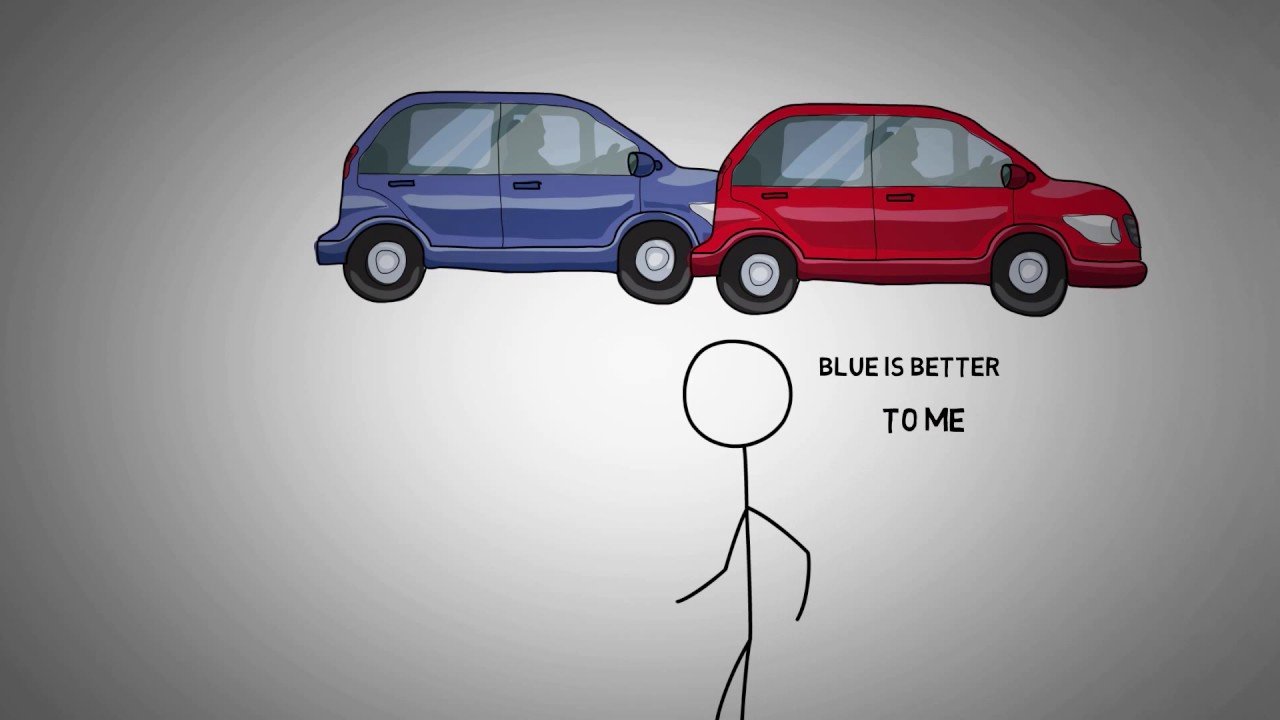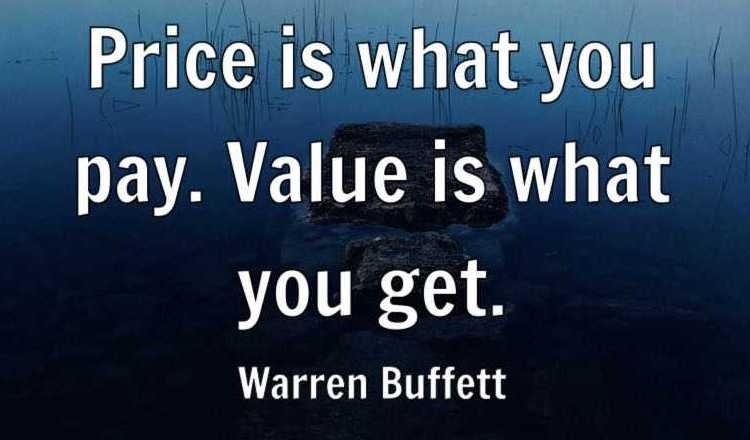Why does your organisation exist?
I think understanding the purpose and reason for an organisation's existence is essential for both leaders and employees. It also provides a sense of meaning and helps guide the decision-making process. By articulating the organisation's mission and vision, leaders can clarify the overall objective and communicate it to the entire team. This clarity allows individuals to understand how their work contributes to the larger picture and motivates them to strive towards shared goals.
An influencer
Influencers play a significant role in the fashion industry by promoting and endorsing brands and products to their large and engaged social media followers. I think real influencers move the needle, unfortunately there are far too many people who are being paid as an influencer and do not influence consumer behaviour and purchasing decisions. Kayne “Ye” West is an influencer, and his Yeezy collaboration with Adidas was terminated due to his alleged inappropriate behaviour. Adidas have admitted that they are experiencing a serious economic downturn. Read more here
Don't shoot yourself in the foot
Are you familiar with the perverse incentives?
Yes, a perverse incentive is an incentive that has an unintended and undesirable result that is contrary to the intentions of its designers. The cobra effect is the most direct kind of perverse incentive, typically because the incentive unintentionally rewards people for making the issue worse. I have seen many wonderful buildings with useless signage, for example, Heathrow Terminal 5. There are many examples of how incentives can have unintended consequences and lead to perverse outcomes, for example, paying doctors based on the number of procedures they perform, rather than the quality of care they provide as this can incentivize doctors to perform unnecessary procedures. Another example is providing subsidies to farmers for growing certain crops even if they are not in high demand, leading to oversupply and lower prices.
I think that in these turbulent times we should all be aware of perverse incentives as they can arise in various contexts, including government policies, corporate cultures, and social norms. Stay vigilant!
You just never know
Sometimes it’s hard to behave with patience when the rest of my life is run on efficiency. If you understand yourself then it should easier to put yourself in somebody else’s shoes, for example, if they are having a tough time or are angry, it’s a good idea to not just dive in and respond to their behaviour. It makes more sense to stop and think about why this person is behaving like that and ask yourself where this behaviour is coming from? Understand it, and if they are just responding emotionally to something and you respond emotionally in return, this behaviour will not get you anywhere. So, it makes sense to hold back, wait and find out the real reason for their outburst.
Maintaining inner peace
Sales can be a high-pressure job, and dealing with rejection and failure can take a toll on one's mental resilience. I think that failure is a natural part of the sales process. Rather than seeing failure as a setback, try to view it as an opportunity to learn and improve. Take your time to analyse what went wrong and use that knowledge to refine your approach and become more effective in the future. Success in sales requires a combination of mental and physical resilience, as well as a willingness to learn and adapt.
It's important to find ways to maintain your mental and physical well-being to avoid burnout. Staying physically fit can definitely help you maintain mental resilience. Exercise can be a great way to release stress and boost your energy levels. In addition, finding activities that you enjoy, such as listening to podcasts or reading books, can help you relax and recharge. Ultimately, by taking care of yourself and continuously improving your skills, you can overcome the challenges of the profession and achieve your goals. Everybody’s energy comes from different sources, I attend the morning Church service in central Copenhagen and I can highly recommend it.
Memory loves meaning
When we try to understand something deeply, it's important to ask why it's true and how it relates to other things we know. I think this helps us to organise the information in our minds and make connections between different pieces of information. This is known as "elaborative rehearsal" in psychology, where we try to relate new information to our existing knowledge. And when we understand the connections between different pieces of information, we are more likely to remember them in the long-term, because our brains can retrieve related information more easily. In my case, this is why it's more effective to learn a concept or idea in context, rather than simply memorising a list of facts.
I have found it helpful to break down complex ideas into smaller, more manageable parts and then focus on understanding each part before moving on to the next. I think one effective way to improve our ability to understand and remember information is to practice active learning techniques, for example, summarising information in our own words, creating mind maps or diagrams to visualise connections between ideas, and then testing ourselves regularly to reinforce our memory. What about you?
Feel good factors
Tirana 2023
The more someone tells you how strong they are the less likely their strength is real. The more someone posts images of their perfect body the less likely they feel perfect in it. I think people should focus on winning their inside game because once you open the faucet of external validation it never fills.
““Your value does not decrease based on someone’s inability to see your worth.” ”
Routines are necessary
What do top salespersons and elite athletes have in common?
Both salespersons and elite athletes require discipline, focus, and the ability to perform consistently at a high level. No matter where you go on earth, when you meet top salespersons regardless of the industry, they all have a routine. Most sales days are unstructured so if you don’t have a routine, it’s easy to drift off into things that are trivial or “important” but they make no impact and add no value. Perhaps, I’m biased because I come from the sports world, but I have observed regardless of where you are in the world, the one thing all elite athletes have in common is routine. They all have a routine that they stick to, whether it’s a practice routine, whether it’s a game routine, they all have a “go to” routine that they always stick to. I think routine helps to eliminate distractions, builds good habits and will increases your chances of achieving success.
Do we add value objectively?
As humans we don’t perceive or value things objectively, as the context of something determines our reaction to it. Therefore, if you want to make something more valuable you can either change the thing itself or you can change the content. I think that there are only two ways to produce a valuable product innovation and marketing.
1. Find out what people really want and then work out a clever way to make it.
2. Find out something you can make and find out a way to make people want it.
Perceptions of truth are relative
People will only ever understand you from their level of perception, therefore, their perception is real, and the truth is not or that it is subjective. The truth refers to objective facts and realities that exist independently of our perceptions or beliefs about them. While different people may have different perspectives and interpretations of the truth, the truth itself remains constant and unchanging. I think it’s important to recognise that our perceptions and interpretations are limited by our own experiences and biases, and that they many not always align with the objective truth. However, when we seek to understand and analyse, we will come closer to understanding the truth and making informed decisions based on it.
SPIN selling
What does SPIN selling mean?
I think that when it comes to selling high-value products a lot of classic rules don’t work and SPIN selling is the ideal sales methodology for making major sales. The term originated from the book, “SPIN Selling” by Neil Rackham in 1988. Rackham studied over 35,000 sales calls made by over 10,000 salespeople in 23 countries over a 12-year period. SPIN selling teaches you to ask situational ‘SPIN’ questions at an appropriate time to move clients through the sales funnel. SPIN questions are based around a framework of four key stages:
· SITUATION – Questions about a client’s process, tools, objectives, and responsibilities. Enabling you to learn about the client’s goals.
· PROBLEM – Questions about what challenges the client is currently dealing with to help them address their specific needs.
· IMPLICATION – Leading questions about problems uncovered in the previous step to help you understand how they negatively affect the client’s organisation. These questions will reframe the size of the problem and increase the sense of urgency in solving them.
· NEED PAYOFF - Questions about potential solutions to reveal and drive home that our product or service will benefit the client’s organisation.
A professional practice
Working as a consultant has given me substantial experience with motivating and inspiring team members to take ownership of their work is a valuable skill that can help to create a productive and successful work environment. I do this by creating an environment where everyone feels invested in the success of the organisation, fostering a sense of teamwork and collaboration which leads to improved morale and higher levels of productivity.
““A wise old owl lived in an oak;
The more he saw the less he spoke;
The less he spoke the more he heard:
Why can’t we all be like that bird?””
Dare to be different
Once you recognise the fact that the truth isn’t taught to the masses, then the pursuit of truth can lead you onto a path of solitude. The weak lean on each other as very few have the strength to walk alone, I think the capacity to experience true solitude may provide you with an inner richness. Nowadays it takes honesty, courage, integrity, and commitment to tell the truth, because we are visibly oppressed and controlled by dangerous influences. There are so many talented people with wonderful creative brains and ideas that we will never hear from because they are too busy surviving. There are also so many people who tried and burned out or were forced to give up their passion to concentrate on making enough money to live. Contact me via e-mail to book a 1:1 session.
As you can see
In my experience, smart people never talk about how smart they are, as they are too busy growing their minds. I have made some observations of smart people, and I think that they tend to:
1. Change their mind
2. Read and write more
3. Have great manners
4. Talk less but say more
5. Stay teachable
6. Show gratitude
7. Ask more questions
8. Work on problems longer
9. Anticipate outcomes
10. Seek feedback
All good leaders can communicate
c/o Forbes magazine
I think leadership and communication are intertwined, as effective leaders are skilled at expressing their beliefs and vision. And by doing so, they build trust and foster a sense of community among their followers. Leaders can also articulate shared values and aspirations. Acknowledging one’s mistakes and vulnerabilities is another key aspect of good leadership. The aim of leadership is not to attract people who need what you have, but to attract those who share your beliefs. Leaders can stand on a street corner and articulate their convictions, drawing others to their cause, as our unwavering belief in an unseen future and our ability to articulate it is our greatest asset.
Don't take it personally
I think sales is a challenging profession, and not everyone who attempts it will succeed. It's important to remember that rejection is a natural part of the sales process, and it's not always a reflection on the salesperson's abilities or performance. That being said, there are certainly things that salespeople can do to improve their chances of success, such as improving their appearance, communication skills, and presentation style.
It's also true that some clients may pick up on a salesperson's nervousness or lack of confidence, and this can be a turnoff. However, there are ways to overcome this, such as practicing sales techniques and developing a deep understanding of the product or service being sold. In addition, salespeople can seek feedback from clients or colleagues to identify areas for improvement. Ultimately, it's up to the salesperson to take responsibility for their performance and strive to improve. By doing so, they can increase their chances of success and minimise missed opportunities. Contact me via e-mail for sales coaching and training sessions.
Nobody likes rejection
Acceptance is one of the fundamental human needs, and it can influence individuals to pursue various career paths. Although sales may be a popular profession, claiming to "love rejection" during an interview is questionable, as it implies a desire for pain or a mere attempt to sound impressive. In reality, rejection is an inevitable aspect of sales, but successful salespeople are those who are willing to endure it in order to succeed. Not everyone can handle the emotional strain of prospecting and facing rejection regularly, which is why many individuals, including some salespeople, shy away from it.
Horse metaphor
c/o The New York Times
Horses possess acute sensitivity and are swift to respond to your energy. To illustrate this concept, I use a metaphor of a horse and its rider. In this metaphor, the horse represents your emotional self - the raw animal energy, the hormones that elicit anger or excitement, and so on. On the other hand, the rider symbolises your rational self - your prefrontal cortex, your executive decision-making processes that employ logical reasoning to achieve your goals.
““Horses jump over obstacles and Macbeth’s ambition will propel him to clear the obstacle of Duncan. However, the word also has other suggestions, which Macbeth realises. Ambition is something of a problem – it may help the rider clear an obstacle, but it may also make the rider go down.””
Everyone wants to be sustainable
c/o Getty Images
Why are we making more and more?
I think the biggest thing we can do is reduce consumption and reduce production. The last few years have been pretty hard for everyone in retail, let alone those like us who are trying to change the fashion paradigm to sustainability. We all like to think of ourselves as leading through the idea of offering modern people comfortable yet empowering designs which simplify their clothing choices during their busy lives. It’s hard to convince people to buy less on a promise it will last longer. In order to succeed in the current economic climate, businesses must move towards a more circular, ethical, and holistic way of operating. The big question is how retailers will respond to the lower demand and higher cost environment that we expect will persist for the rest of this year.
““Just do less: Buy less, consume less, produce less. That’s a really hard line to walk when you’re trying to run a business and you’re measuring your success by how much you sell.” ”
The triangle of change
In general, most individuals and organisations will only change when there is either a massive reward or there’s going to be massive pain, suffering or inconvenience by not changing. The "triangle of change" is a model used to explain the three key elements that need to be present for change to occur successfully in any organisation. The three things that make up the triangle of change are:
Leadership
Change needs to be led by someone who has a vision and is willing to take action to make that vision a reality. Effective leadership is crucial for creating a sense of urgency, inspiring and motivating people to embrace the change, and providing direction and guidance throughout the process.Culture
The culture of an organisation or system plays a crucial role in determining whether change is successful. A positive and supportive culture can create an environment where change is embraced and people are willing to take risks, learn new skills, and adapt to new ways of doing things. On the other hand, a culture that is resistant to change can make it difficult to implement new ideas and initiatives.Process
The third component of the triangle of change is the process, which refers to the steps and actions that need to be taken to bring about the desired change. This involves setting goals, creating a plan, implementing the plan, and measuring progress along the way. Effective processes are essential for ensuring that change is managed in a structured and systematic way, and that everyone is working towards the same goals.





















